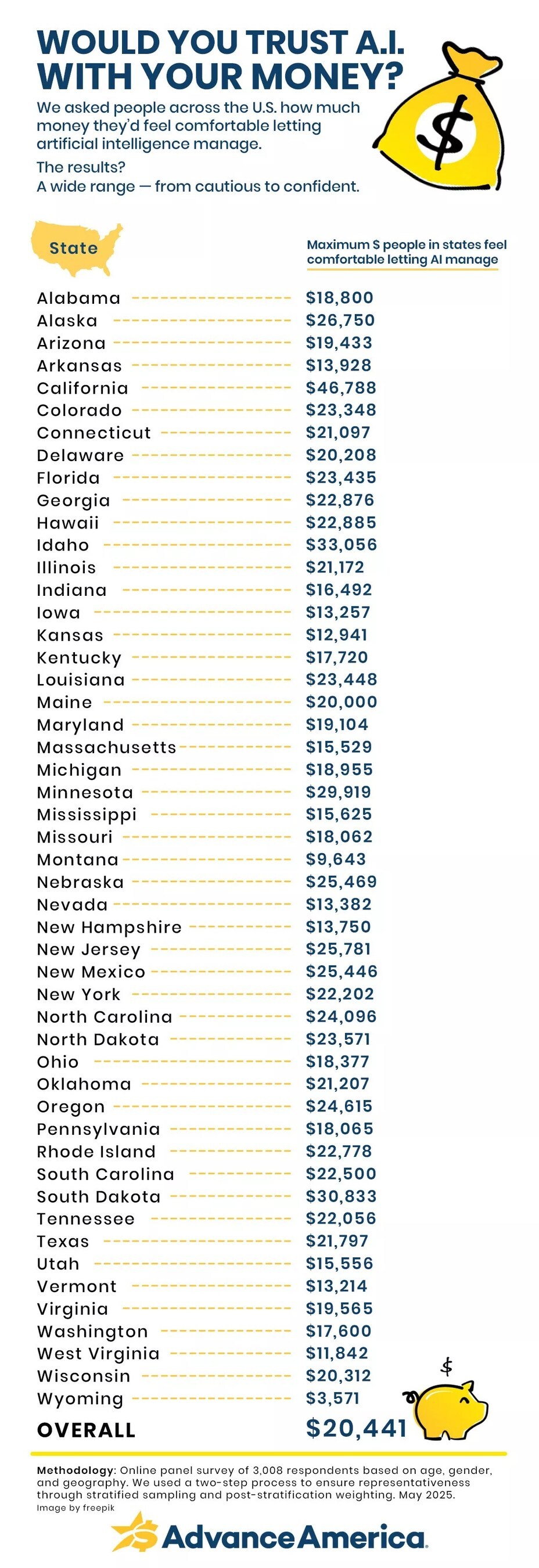This state leads the nation in financial AI trust

A recent survey reveals Americans are increasingly willing to let artificial intelligence handle their money, with respondents trusting AI with an average of $20,441 in financial management tasks.
The survey, conducted by Advance America, a consumer lending company, polled more than 3,000 US adults through a geographically representative online panel. The findings suggest a significant shift in public attitudes toward AI-powered financial tools.
Regional differences emerged as a key finding. Californians demonstrated the highest confidence in AI financial management, willing to entrust an average of $26,788 to artificial intelligence systems. Wyoming residents showed the most caution, trusting AI with only $3,571 on average.

The survey examined specific financial tasks Americans would delegate to AI. Tax filing topped the list, with 31% of respondents willing to let AI handle their tax preparation. An equal percentage would allow AI to select stocks for their investment portfolios.
Cryptocurrency purchases drew support from 22% of respondents, while 15% would permit AI to rebalance their retirement accounts. These findings reflect growing comfort with automated financial decision-making across various investment categories.
Trust in AI extended beyond individual tasks to broader financial relationships. Twenty-five percent (25%) of respondents said they would trust AI more than their current financial advisor. Even more striking, 27% indicated they would prefer AI over their romantic partner when managing joint finances.
Long-term financial planning also showed AI acceptance. Twenty-eight percent (28%) of respondents would allow AI to plan their retirement, while 26% would feel comfortable taking out loans or mortgages based solely on AI recommendations. Seventeen percent would permit AI to make large financial moves without prior notification.
Laura McCutcheon, vice president of marketing at Advance America, emphasized the importance of balanced AI adoption. “AI can be a valuable starting point when researching your financial options—especially for budgeting, comparison shopping, or exploring different investment strategies,” McCutcheon said. “But ultimately, major decisions about your money should factor in your unique circumstances, goals, and risks. Those are things AI still can’t fully understand. Think of it as a co-pilot, not the captain.”
The survey methodology involved stratified sampling and post-stratification weighting to ensure balanced representation by age, gender, and location. Participants were selected through a two-step process from double opt-in panel members.
What are your thoughts on the latest findings? Share your insights in the comments below.



